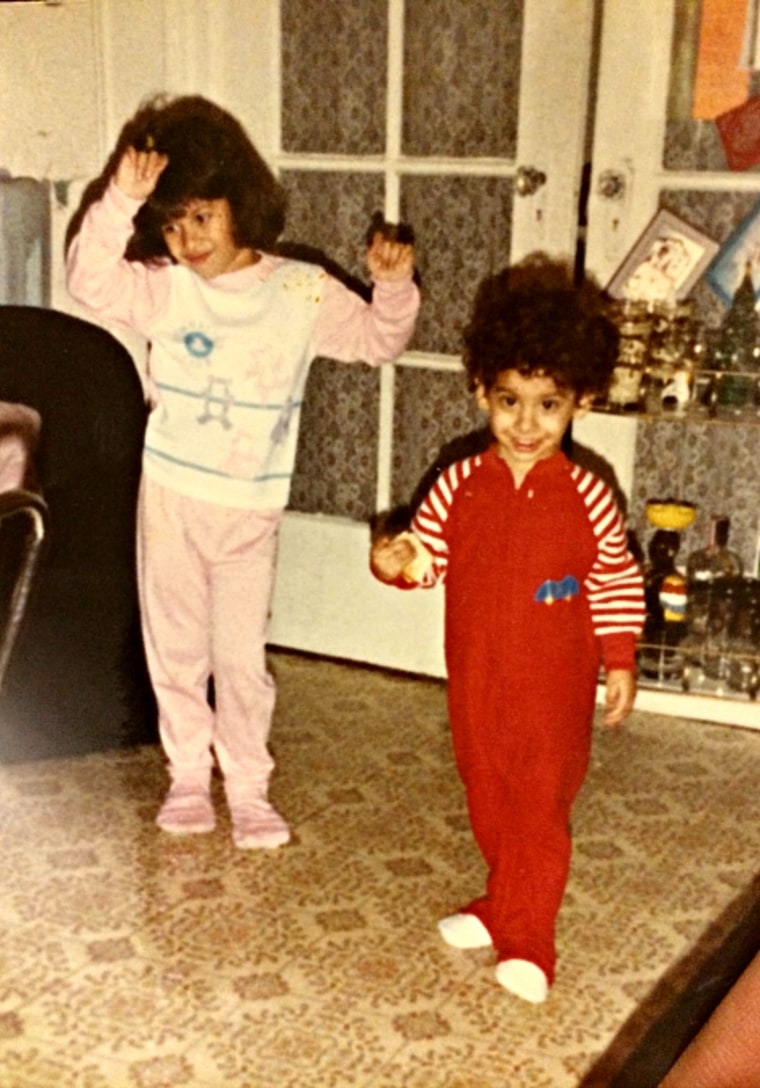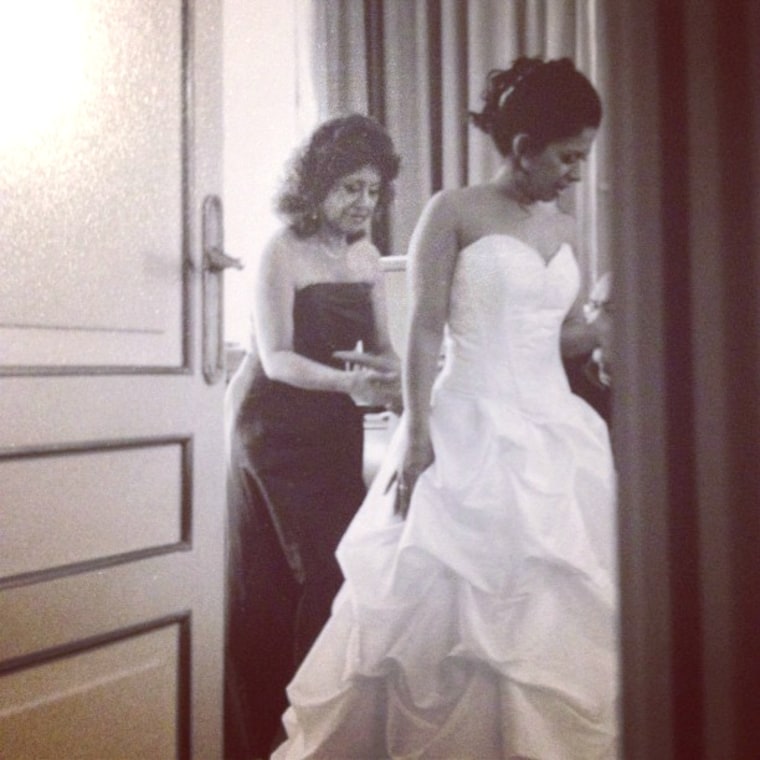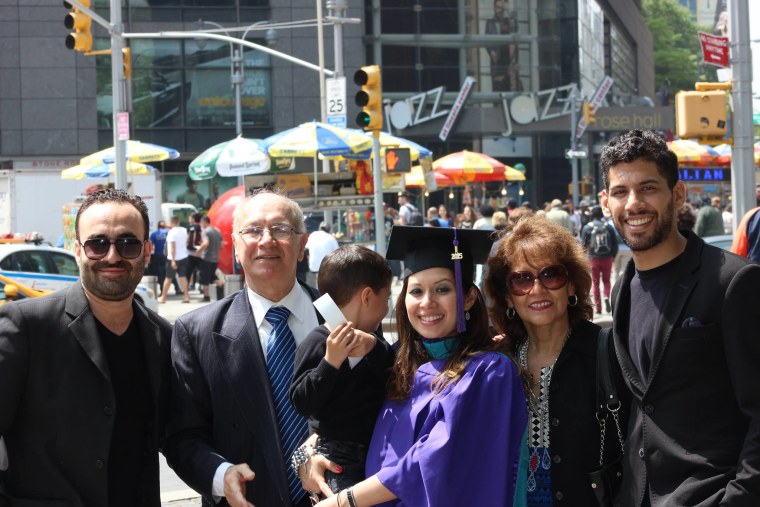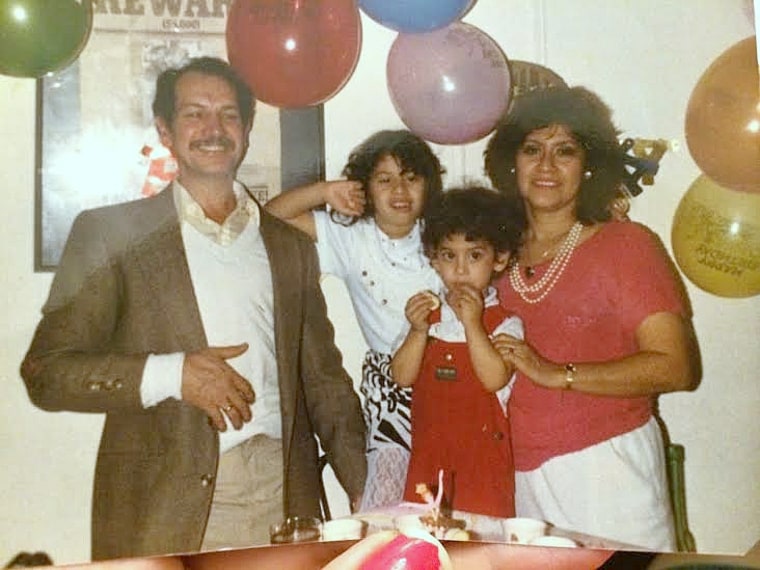QUEENS, NY -- Children of immigrants serve as a bridge between old and new cultures. We become translators and must explain the American way of life to our parents who often rely on us to navigate this world that is foreign to them.
Growing up I just wanted to be like other kids. Who doesn't? I wanted my mom to be part of the PTA and I wanted to get chips and Twinkies for lunch (we weren't allowed to eat junk food). I wanted my parents to bring cupcakes to school for my birthday like all the other kids... They never did. I mean, why bring cupcakes to school when I was going to have a party with lots of family, music and good food (as in, arroz con pollo, not hot dogs and hamburgers which my mother doesn’t consider “real food”).
So from early on I was aware that my family wasn’t the “typical” American family that I saw on TV; I knew that we didn’t do things the same way. Kids on TV were allowed to get away with things that we were not- like talking back—which I did one day and which earned me a big slap. And I may have gotten spanked a few times (once for pulling my dad’s hair.) Do I think I deserved to be spanked? I probably did. Disrespect and sass were not tolerated; I learned early on that it was the adults who were in charge, not the kids.
Sleepovers were no-nos. “You have a house, why do you need to sleep in someone else’s?” When I asked for an allowance: “Why should I give you money for getting good grades? It’s your job to get good grades and do well in school.”
We weren’t allowed to just go out and do what we wanted when we wanted. My parents had to know where we were and who we were with. Sometimes they’d ask to get my friends’ phone numbers and talk to the parents.

Traditional gender roles were alive and well. Two sets of rules, one for my brother and one for me. I’d hear “Well, he’s a boy, so he can.” That was infuriating. I thought, “In America boys and girls are equal.” (At the time I didn’t know about the gender wage gap). When my brother was a teenager my mom would call and ask me to heat up his food and serve it to him. I mean, really, as if the kid didn’t have two working hands and didn’t know how to work a microwave. That was hardest for me --the idea that women can’t do certain things because they are women, that girls belong in the kitchen, that men should be served. I refused to accept any of that.
Being a teenager is hard enough-- but try being a teen that is raised with two set of norms: your parents’ and society’s. You are constantly navigating both sides… One said I had to be feminine, curvy (not too skinny, but not fat either) and then the other said you had to be Twiggy or be athletic. Let's just say in my day, parents weren't running to take little Hispanic girls to soccer practice (because fútbol was a boy's sport).

Then you had the taboo stuff like sex. My parents never gave me the "birds and the bees" talk. I knew I was expected to not "open my legs" and get pregnant out of wedlock, the ultimate disaster in my mother's eyes, a sure sign that she had failed as a mother. When I got married my mother felt like she had done a good job (because I had not been knocked up). I know this because as she put the veil on my head, she told me so.
I wanted to do what my friends were doing, like going on Spring Break to Cancún as high school seniors. “Estás loca.” (You’re crazy.) "I don't understand how these parents can just let their daughters go without supervision?!" Or when I was in college and I went away with my (serious) boyfriend. Mami was so angry and she told him that she did NOT approve of that. "Where I come from, this is unacceptable.”
I grew up thinking that men and women were equal, but my mother thought my ultimate goal should be to find a husband, and be a good housewife. All I wanted was to have a career.
When I graduated college, I moved to Europe. As I was packing my bags I remember my mom saying, “Why are you moving to France? There are jobs in NYC too, why do you have to move so far away?” Funny thing is I lived at home while I was in college. My mother just assumed I would live at home until I got married. I wanted to see the world.
While in France I met my husband. I moved in with my then boyfriend, and while in American families that might be normal (and my French boyfriend’s mother even encouraged it!) my mother didn’t accept it. She didn’t acknowledge it until I finally announced a wedding date. While my husband is not Hispanic, he loved Hispanic culture and spoke Spanish (which definitely put him on my mom’s good side). He had many of the same values I had been brought up with: the importance of hard work, education and family. I actually realized that French and Hispanic culture have a lot in common (definitely more than American and French!)

Now that I have a kid of my own I understand why I couldn’t go on sleepovers or why I couldn’t have junk food. My multicultural kid will not have Twinkies, but I may join the PTA. He will be expected to heat up his own food and cook his own dinners. He will learn that men and women are equal, and that it is not a woman’s job to serve a man, that marriage is a partnership. He will learn to navigate an amalgam of cultures because that is who he is. I pray that just like me, he will learn to love all sides of his cultural heritage.
As crazy as it was navigating two worlds, both my cultures have shaped who I am. I'm a proud American and I am very proud of my roots. I have never been ashamed of my background. We weren’t poor, but we had what we needed: a roof over our heads, a house (albeit small) filled with love and support and encouragement. My immigrant parents always stressed hard work and the importance of education. My father would say, “All the sacrifices we make are so you can get an education, because that is something no one can take away from you.”
I think many (if not all) immigrant children carry that around with them. The idea that we must not let our parents down, that we must succeed in order to make our parents’ sacrifices worthwhile.
As a first-generation bicultural American, I have grown up amid the best of both worlds. I am blessed.
